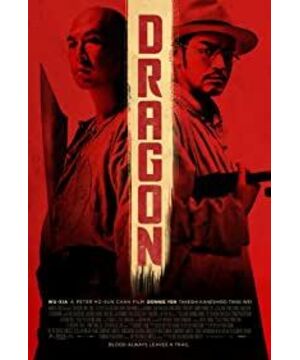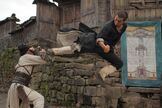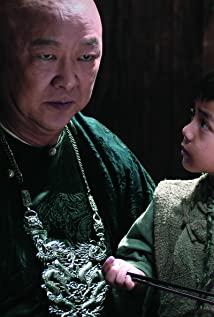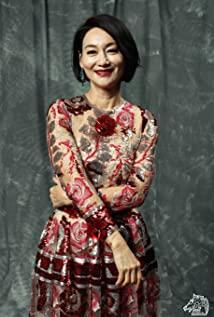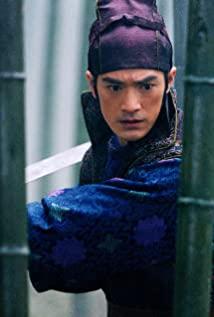Gashua The idea of passive avoidance and self-isolation in our era is so deeply rooted in the hearts of the people that the heroes in martial arts films have all played the game of hiding their names. If it is said that in traditional martial arts films, heroes go back to seclusion, or to strengthen their will, keep their strengths and bide their time, and report again in ten years; or after becoming famous, "hold the hand of the son and grow old with the son", then in the past two years, we have been in the theater for the past two years. In the martial arts films I have seen, the protagonists are often the detractors of the rivers and lakes from the beginning. They have never achieved the status of heroes, and they have never set foot in the heroic act of being a chivalrous person. Because of their blood debt, they were originally morally weak, and they were objects to be sheltered. Zeng Jing (Michelle Yeoh) in "Sword Rain" seeks protection from the market society, while Tang Long (Donnie Yen) in "Wu Xia" seeks protection from the civil patriarchal society. The characters and plots of the two films are very similar, and they are all variations from the famous American gangster film "A History of Violence". It is a knight in name, but it is actually a gang member; it is a martial arts film in name, but in fact it has been turned into a gang.
The so-called Dao does not work, and everyone is safe. Maybe people don't need a hero who always saves people from water and fire, and the "chivalry" spirit in history has never occupied any mainstream; true ethical basis. Chen Kexin is familiar with this point. His "Martial Arts" did not dwell on the meaning of "chivalry" for a little while. Accordingly, there is no river and lake built on the basis of chivalry in the film. Brotherhood and martial arts are common in traditional martial arts films. , Qimen Hidden Weapons and Unparalleled Secret Art have also disappeared. He deliberately took a different path and wanted to refresh the concept of martial arts films, but the path he chose was too narrow.
The so-called "microscopic martial arts" is to rely on special means to show the audience the internal physiological process of Kung Fu's heavy damage to the human body; the so-called "scientific martial arts" is to explain to the audience the medical reasons for Kung Fu's death by combining traditional Chinese medicine methods. Although these two concepts are novel, they are not enough to change the pattern of a movie, nor are they truly transformative innovations. As far as the former is concerned, it is just a gimmick of the movie at best. When a movie's character plot design, director's narrative and scene scheduling ability are maintained at a high level, it can bring additional dividends to the movie. If it is regarded as the center of gravity, it will be a little suspicious. As far as the latter is concerned, the concept itself is full of paradoxes. A martial arts film is an artistic imagination, and martial arts itself is a kind of pseudoscience. If the director explained martial arts in a serious way, it would not only be unhumorous, but even a little dangerous. .
Nowadays, many "blockbusters" like to take a little touristic nature, so that the audience can watch the story while enjoying the beautiful natural scenery of the shooting location. As far as "Wu Xia" is concerned, the tourism in the film has gradually become "three-dimensional". In addition to the beautiful mountains and rivers in Yunnan, it also leads the audience to visit the local folk customs. Chen Kexin spent a lot of time expressing the local patriarchal society in Yunnan, and took the trouble to show the audience the content of clan sacrifices, inscriptions on genealogy, clan customs and life customs. Extra point of view. Soon, however, the tension between authenticity and the inherent falsity of the genre is revealed, making the film's ending all the more brutal. When the villagers in "Real Society" were rallying to commend Tang Long's "merit" to the local area, the killer in the genre film suddenly broke in, and the killing began. These victims were completely different from those in traditional martial arts films who did not Fall victim to any performance and their death will sting the audience. The protagonist who was originally a hero actually did not bring any benefits to the local society, but brought disaster. The director of "Martial Arts" did not seem to notice this - the moment Donnie Yen revealed his real body, the movie gave a Big Yang shot, just like a hero's appearance. The fights that followed were cool and dazzling, accompanied by exciting music and hearty rhythms. Thinking of the villagers who died for him, the audience can't help but ask, is it necessary to make it so good-looking?
Chinese films are weaker than screenwriters, and "Martial Arts" once again confirms this. The most heart-wrenching thing about watching a movie is that behind the beautiful art design and gorgeous scene scheduling, a bad story is ruined. The plot design of "Wu Xia" is separated between three different centers, and all three want to be taken into account, so they are all different. A story about a killer centered on Tang Long who changed his mind and turned himself into a new man, but was finally re-engulfed by the whirlpool of the past, but the film's character and psychological portrayal of Tang Long is obviously not enough. The reason for this is that Tang Long's performance is very Much of it went into his relationship with his wife, Ayu (Tang Wei), which was the second center. The positioning of the character Ayu is the most unreliable. This is basically a role that can be omitted with as few lines as possible, but the film is obviously forced into a half-baked relationship out of the actor's consideration. This is very harmful, and it seriously distracts the audience, and I became more convinced when I heard the neighbors whispering in the theater that Liu Jinxi (i.e. Tang Long) and A Yu might have teamed up to murder the latter's ex-husband. Takeshi Kaneshiro's clue to the detective case of Xu Baijiu, played by Takeshi Kaneshiro, is the third center of the film. As the narrator of the story, Xu Baijiu is the most forceful character in the film. His identity as a catcher, his moral cleanliness, judicial paranoia, and his sultry appearance really make this character somewhat cute and unusual. However, the plot in the film that shows him and Tang Long cat catching a mouse is really dragging on too long. It is not a clever trick in itself, and the investigation process is not complicated, but it underestimates the audience's IQ and sells it to such a degree. It's kind of annoying. In addition to too many centers, there are also many small loopholes in the screenwriter of "Wu Xia", and sometimes the relationship between characters does not seem to be based on common sense. When Xu Baijiu once tried to test Tang Long and nearly killed him by falling into the river, the relationship between the two and the attitude of the villagers towards Xu Baijiu did not seem to have changed, which was somewhat unreasonable. At the end of the film, the plot where the villain "the leader" was struck to death by lightning was completely sloppy.
In the whole "Wu Xia", the characters with the least procrastination are Wang Yu's "Master" and Hui Yinghong's "Thirteen Mothers". These two were just killed from the genre of martial arts films. In them, cruelty is just cruelty, heartache is real heartache, they kill with joy, and they die simply. Based on the professionalism of the two actors and my love for old-fashioned Hong Kong martial arts films, here's a tribute to them!
View more about Dragon reviews


